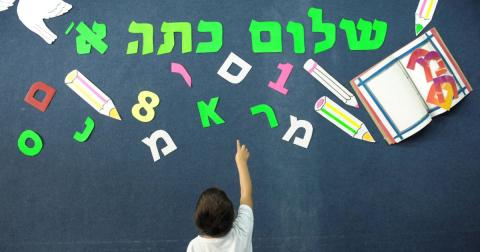OECD report: outdated methods, overcrowded classes, and increased violence in Israeli schools
In 2013, the first time the survey was conducted in Israel, 13 percent of principals reported such behavior.
The study also finds there are three times as many instances of theft and vandalism at Israeli middle schools as per the OECD average. Students seemed to corroborate these findings in questionnaires about school atmosphere filled out during statewide achievement exams, where they reported a greater number of violent incidents than students did abroad. But the OECD questionnaires show a drop in instances of violence compared to 2013. One of the reasons cited is the difference between the Jewish and Arab population groups. The questionnaires on the Israeli exams reflect a higher incidence of violence in Arab schools, whereas the OECD findings reflect a lower incidence of violence in Arab schools than in Jewish schools.
Drug and alcohol abuse and threats against teachers are less common in Israel. The study finds only one percent of principals reporting such substance abuse by pupils, with no principals reporting any threats, verbal or physical, by teachers against their students.
The study covered pupils in grades seven through nine. Some 30 percent of teachers reported disciplinary problems that wasted a lot of classroom time and noise that also disrupted school routine. The figure was similar to the one in 2013. The statewide exams reflect an even worse picture, with 71 percent of pupils reporting frequent classroom disruptions.
A look at teacher-pupil relations shows a more positive picture. More than 90 percent off teachers said the school provides assistance to pupils in need and that teachers and pupils tend to get along well with each other. However these reports are based on what the teachers say. When pupils are queried on the subject in state exams only half report close or caring ties between teachers and their pupils.
The TALIS survey has been conducted every five years since 2008. Israel has been a participant since 2013.
Shira Kadari-Ovadia

